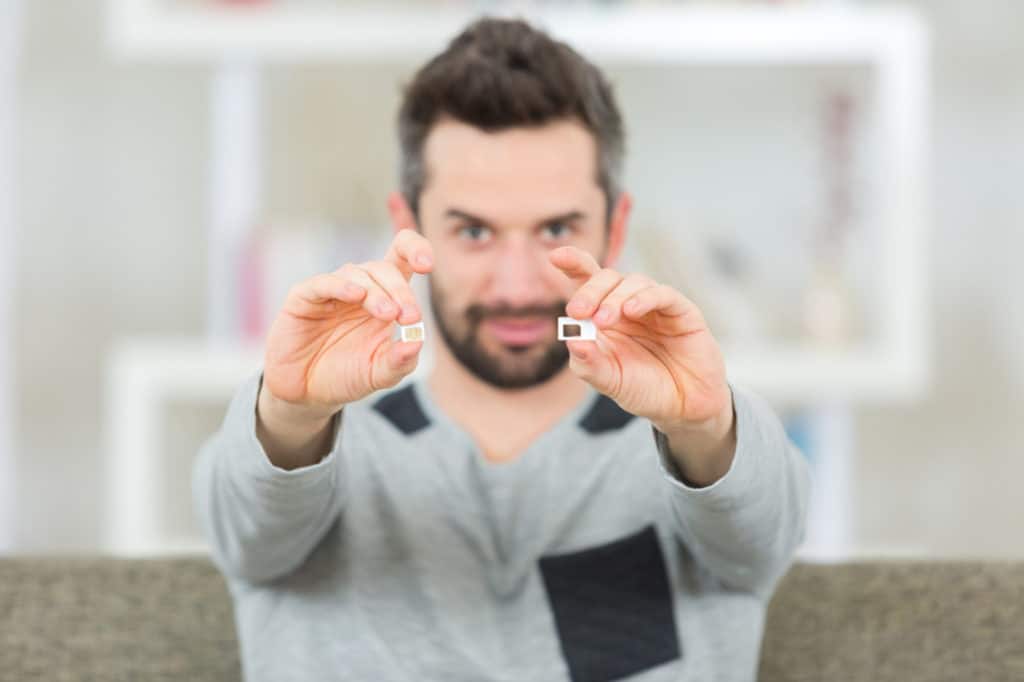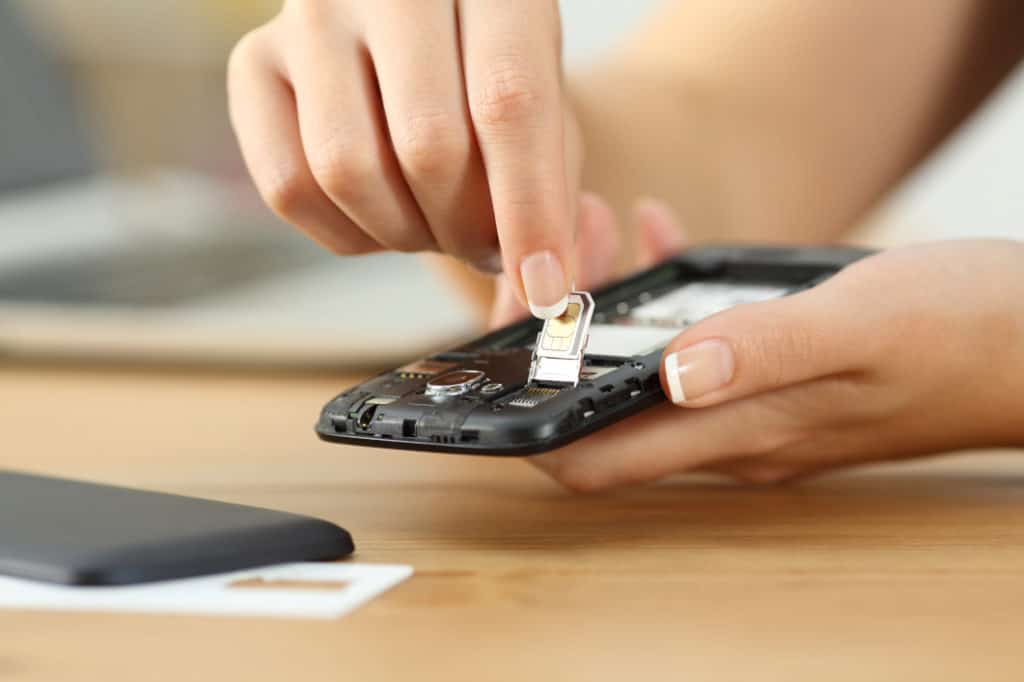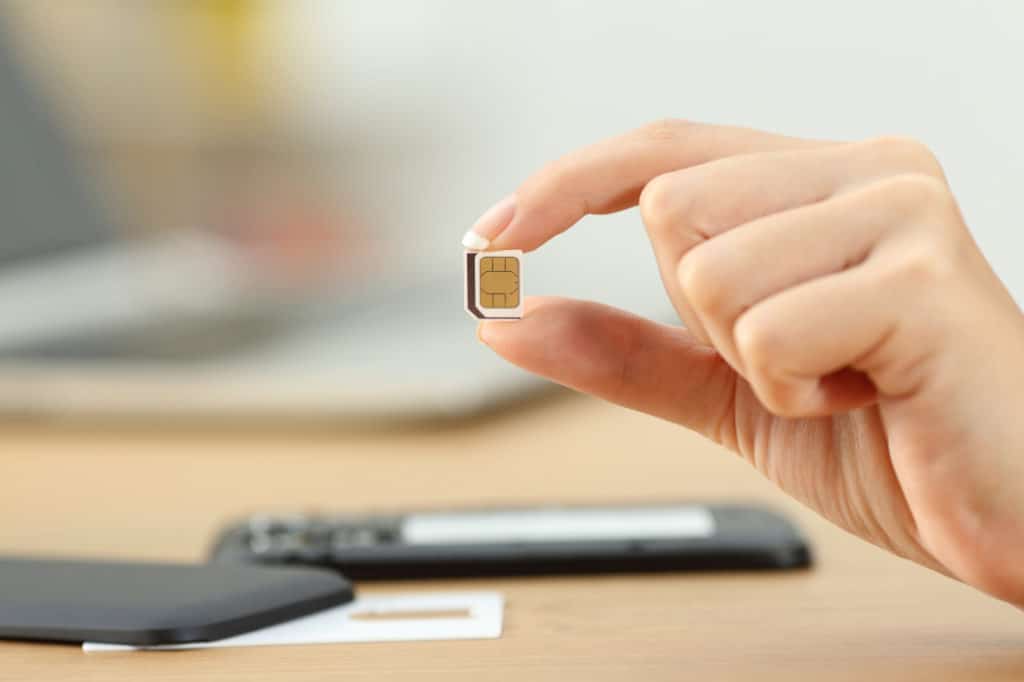Have you ever seen a character in a movie dispose of a cheap phone by throwing it in the trash or destroying the SIM card? Have you ever wondered why they would do such a thing? This guide will answer all of your questions about burner phones and temporary phone numbers. But first, what is a burner phone?
A burner phone is a cell phone you purchase anonymously, use for a short time, and discard. Often bought with a prepaid plan, the mobile phone is used for privacy, a dedicated purpose, or to prevent damage to a primary device. A burner app is another option for a temporary, second phone number.
Even though both the phone and the mobile service plan are cheap, what's the reason for having a burner phone?

What is the point of a burner phone?
The point of a burner phone is to provide a separate device and phone service that is temporary and easily disposed of. A secondary line provides compartmentalization, some anonymity, and protection of a user's primary mobile device, service, and identity.
Your current situation determines whether a temporary second phone is useful and may help protect your phone and number
Do you need a burner phone?
You do not need a burner phone for the average user. Cheap, disposable phones contribute to the growing e-waste problem. Burner phone numbers are recycled and may have undesirable connections to all the previous users. Carefully consider your situation to decide if a burner phone would help.
But you don't have to be a criminal or drug dealer to use a burner phone. There are plenty of legitimate situations where a disposable phone number and/or mobile device is applicable.

Why do people use burner phones?
The reasons vary why would you need a burner phone. Here are 11 examples of why people use burner phones:
Travel: Having a local number in another country while on vacation
Protests: Using while attending peaceful protests, demonstrations, and public gatherings
Online Accounts: Opening or using social media accounts without giving personally identifiable information
Dating: Staying safely distant during the early parts of a relationship
Classifieds: Selling used personal property in as-is transactions
Adventure Sports: Keeping a primary phone safe while participating in extreme sports where damage may occur
Abusive Relationships: Adopting a burner phone to aid in exiting an abusive relationship while maintaining communication
Kid Contact: Sending children to summer camp while ensuring they have a device to make and receive basic calls
Automation: Leveraging services like IFTTT, Zapier, or other services
SEO EAT: Incorporating Expertise, Authoritativeness, and Trust into your site by publishing a small business phone number
Two-Factor Authentication: Securing website accounts that do not support authenticator apps by dedicating a phone to receive security code texts
People use burner phones for any situation where it's convenient or desirable to discard a phone number and/or the physical mobile device. Despite the legitimate uses, the additional privacy gained by using a burner phone also attracts illegal use.

Why do criminals use burner phones?
Criminals use burner phones to compartmentalize their activities. A burner phone used for a specific purpose and for a short time limits potential identification. Criminals are replacing burner phones with advanced telecommunications solutions.
Remember:
Nothing is unhackable or totally private. Intelligence services are continually walking the line of personal, individual privacy, and public safety.
How private is a burner phone?
A burner phone is private as long as it's used mainly for data-based communication that can be properly encrypted. Standard phone calls and SMS text messages are insecure. For privacy, users should only purchase a new, inexpensive smartphone as a burner phone. Never buy a previously-owned device.
Next:
Wait for a few days after purchasing.
Activate the burner phone in a busy area that you do not visit.
Install a secure messenger app like Signal, Briar, or Element somewhere with free WiFi.
Only make and receive calls and texts over these apps.
Rob Braxman's video (6m56s@2x) does a complete deep-dive into burner phones.
Hopefully, you've purchased enough prepaid data. Depending on your location, you can recharge, refill, or top-up using cash or cryptocurrencies. Prepaid phone plans are ideal for burner phone service.
What is the difference between a burner phone and a prepaid phone?
A burner phone is different than a prepaid phone. Burner phones are explicitly purchased for short-term or occasional use. A prepaid phone can be used as a burner but may stay in service for an extended period as a primary cell phone. The difference between the two depends on the ownership time frame.
Since the only difference between a burner and a prepaid phone is the amount of time it's employed by the user, it's difficult to know if someone's using a burner phone.
How do you tell if a phone is a burner?
You cannot easily tell if a phone is a burner. Someone with a cheap, secondary cell phone may be using a burner phone. Mobile service providers can sometimes identify if a caller was using a burner phone number. Laws requiring identification at the time of purchase may establish burner phone ownership.
Typically, burner phones are purchased (pseudo)anonymously. This impacts the ability to know the owner on the other end of a call.
Can you see who is calling from a burner phone?
It is not possible to see who is calling from a burner phone. Burner phone users cannot be identified until laws are passed requiring personally identifiable information (PII) to be collected during purchase. Call, or text origins will not be identifiable over data-based, encrypted messenger apps.
If you receive a standard voice call or text, your mobile phone company may have some tools to research the caller or sender.
Burner phone number apps are another option to maintain a burner number without having a second physical device. If you subscribe to a burner app service, your billing information links to your real identity.

Can someone find out your real number if you're using a burner app number?
For the average citizen, it is not possible to find out a real number from a burner app number. Burner app companies may help resolve service abuse and harassment cases. Law enforcement can compel the companies to identify a subscriber, handing over call detail records and billing information.
Law enforcement and intelligence departments have a lot of tools and laws in use to help catch criminals.
Can the police trace a text from a burner phone number?
Police can trace a standard text from a burner phone number. Regular voice calls and standard SMS messages are insecure and logged by the sending and receiving service providers. Law enforcement can compel companies to provide tracking information and communication content.
Using a secure, end-to-end encrypted messenger for calls and texts instead of outdated communication technology can maintain personal privacy.
Remember:
Even data usage over mobile networks or internet service providers when on WiFi can be logged and analyzed.
Do burner phones protect you from the government?
Burner phones do not protect you from the government. A sufficiently-funded intelligence department can track the purchase and use of temporary numbers and mobile burner phones.
Using a burner phone for short periods without another primary device can help reduce tracking when used as part of good operational hygiene tailored to your defensible threat model.